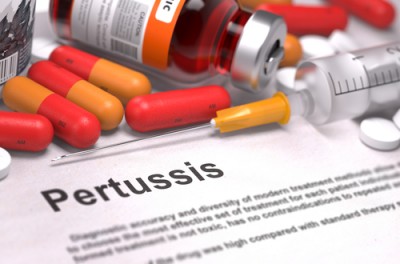Scientists engineer potential treatment for pertussis
Posted: 3 December 2015 | Victoria White | No comments yet
Preclinical testing demonstrated that the new antibodies work as a prophylaxis to provide short-term immunity and as a treatment to accelerate recovery…


A team of researchers from The University of Texas at Austin and Synthetic Biologics have developed two antibodies to potentially treat or prevent whooping cough (pertussis).
For the past five years, the research team has worked to develop two antibodies as a new anti-pertussis therapeutic injection. The team’s efforts recently paid off as preclinical testing demonstrated that their antibodies work as a prophylaxis to provide short-term immunity and as a treatment to accelerate recovery.
Jennifer Maynard, a chemical engineer in the Cockrell School of Engineering, is collaborating with Dr. Michael Kaleko, senior vice president of research and development for Synthetic Biologics. Synthetic Biologics has licensed the antibodies from UT Austin to eventually bring the product to market.
“In the developing world, an estimated 200,000 babies die a year, and that’s where we think we can have a really big impact,” Maynard said. “If we can get our antibodies to these high-risk infants, we could potentially prevent the infection from occurring in the first place.”
Maynard’s two antibodies potently neutralise the pertussis toxin and could be used individually or be developed as a combination therapeutic. The first binds to the toxin and prevents it from attaching to healthy cells; the second stops the toxin from reaching its target within a healthy cell.
By neutralising pertussis toxin, the antibodies are anticipated to bolster immune function and rapidly reduce the white blood cell count.
“We believe the key to preventing death is reducing the white blood cell load, which becomes extremely elevated during infection,” Kaleko said. “If we can bring the count down or keep it low, the sick child may have a much better prognosis.”
The antibodies diminish pertussis bacterial loads
When the team administered the antibodies before infection in mice, the treatment acted as a vaccine, giving passive immunity to pertussis. When administered after infection in nonhuman primates, the antibodies lowered the white blood cell counts, speeding recovery.
In animal models, the antibodies did not completely eradicate the pertussis bacteria, but they diminished the bacterial loads and kept symptoms at bay. The researchers think the treatment could be combined with antibiotics to eliminate the bacteria that cause the illness.
Related organisations
Synthetic Biologics, Texas University



